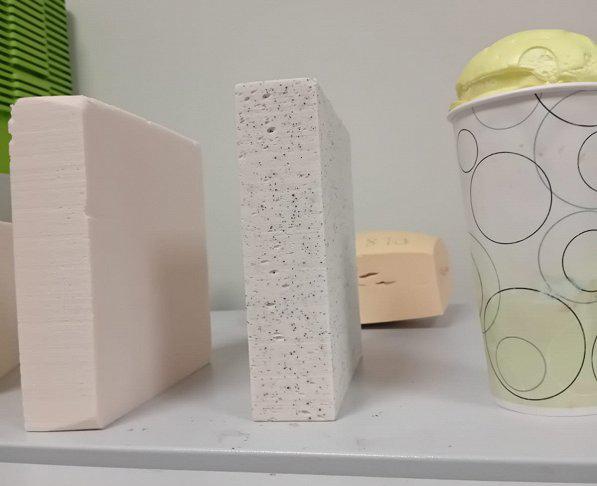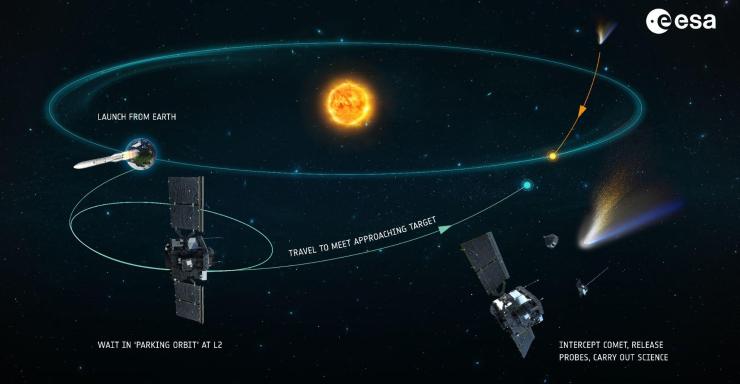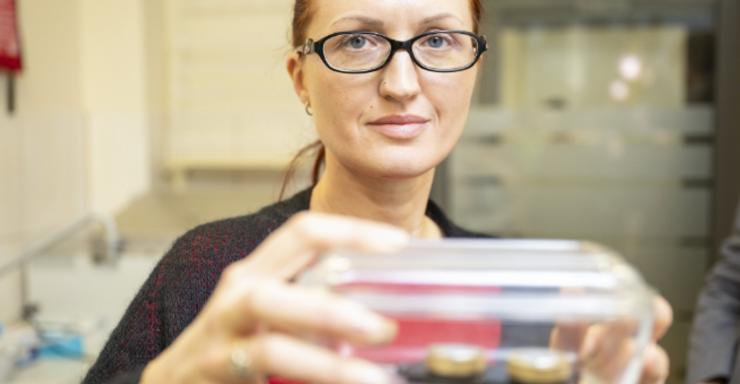In July of last year, the European Space Agency's (ESA) Ariane-6 rocket delivered artificial satellites into space. The successful rocket launch is also a credit to Latvian scientists. A unique material developed at the Wood Chemistry Institute protects the rocket’s fuel tanks from the extremely low temperatures in space.
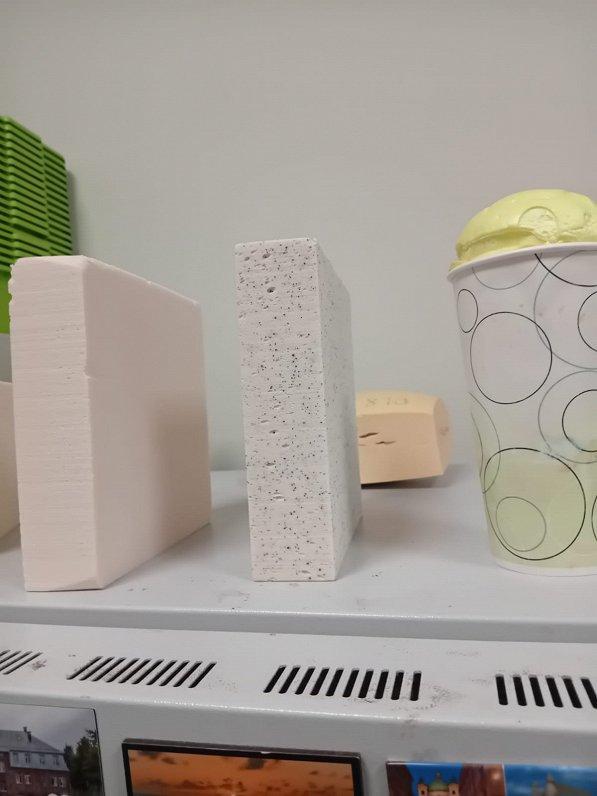
One of the major challenges faced by space rocket engineers is how to ensure the thermal insulation of the rocket’s fuel tanks (liquid oxygen and hydrogen). This is crucial because the insulating material must withstand the thermal shock caused by the very low temperatures in space, which can reach as low as minus 253 degrees Celsius, as well as the forces experienced during launch. Researchers must create materials that do not become brittle in these conditions, and this has been achieved by scientists at the Latvian State Institute of Wood Chemistry's Polymer Laboratory.
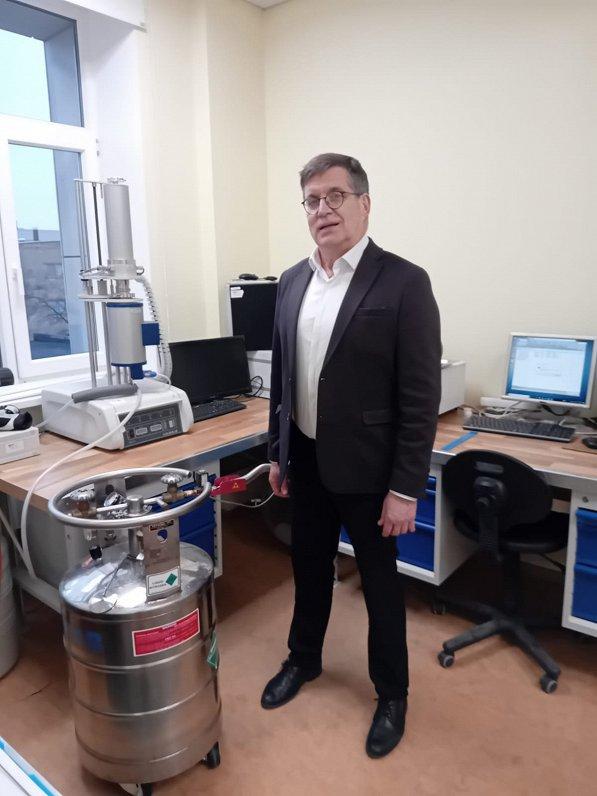
Photo: Ilze Kuzmina
Different types of polyurethane foam are widely used in materials: the soft version is used for upholstery in furniture and car seats, while the hard version is used in construction, refrigerators for thermal insulation, and elsewhere. Meanwhile, on the rocket's surface, this material is sprayed in a thin layer, creating a texture similar to that of sheep wool. This material is not foamed beforehand but is blown with a special gun connected to two tanks, each containing a separate component. The substances only mix during the foaming process.
It should be noted that the chemical composition of the cryo-insulation material is different from, for example, foam rubber, whose pores are not closed and, therefore, are not insulating.
"Specific polyurethane foam formulas have been developed to work at cryogenic temperatures, because at very low temperatures, all materials become brittle and crumbly. The rocket must have both cryogenic insulation and a material with high mechanical strength because, during launch, there are various vibrational and thermal loads," explained lead researcher, academician Uģis Cābulis.
The institute has decades of experience researching cryogenic insulation materials. Work on the coating used in rockets started 20 years ago when the German company group "Ariane" invited Latvian researchers to develop a suitable material for the rocket.
The polyurethane foam, from which the cryo-insulation material is made, is created by mixing two components: a polycomponent and isocyanate.
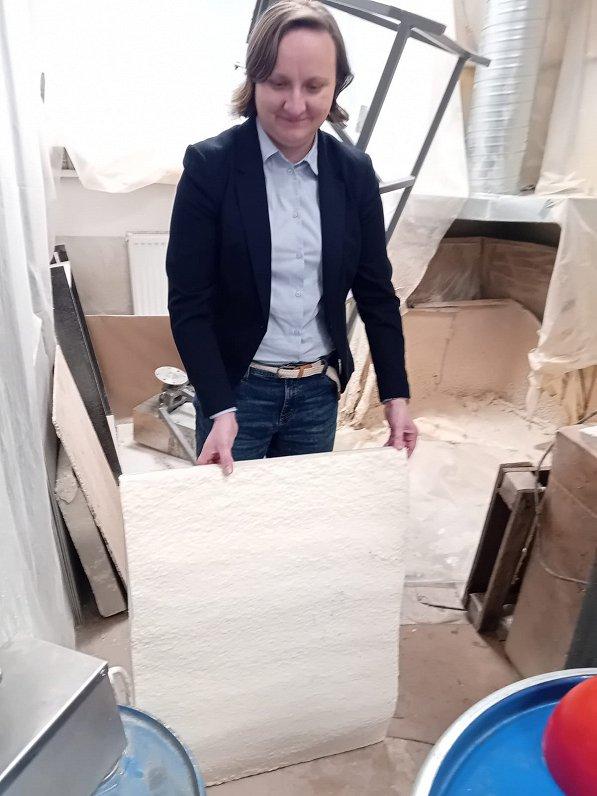
When asked how they arrived at the formula used in rockets, Cābulis replied:
"Well, that's what we are: chemists, materials scientists. We work on it, modify compositions, then formulas and calculations, modeling, and we got there!"
There have been many tests, and much had to be changed and tried. One of the European Space Agency's requirements was that the material be made from components available in Europe and that the rocket builders be able to produce the cryo-insulation material based on the Latvian recipe. If the Space Agency builds new rockets, the Latvian-developed material is planned to be used in them.
Researchers are also exploring ways to create cryo-insulation materials from renewable resources. However, the material used for the rocket is made from petroleum products. This is because the properties of materials made from wood or rapeseed are variable: they are acceptable for construction, but in the rocket's structure, everything must be perfect.
"In space, the recipe has to be super precise to avoid defects during flight," added Cābulis.
The institute can only test the material at temperatures of about minus 170 degrees. Therefore, the final tests were conducted at the European Space Agency's laboratories.
The achievement of the Wood Chemistry Institute’s researchers in developing cryogenic insulation material was recognized as one of the scientific breakthroughs of Latvia in 2024.
Meanwhile, researchers continue to study polyurethane foam both to improve its properties and to find ways to produce it from renewable resources. Cābulis noted that cryo-insulation materials will be in high demand in the future. For example, cryo-insulation is also necessary for tanks used to transport liquefied gases and hydrogen.
